Voting and Representation: New Issues and Challenges
October 1 & October 8, 2020 | 12:00 p.m. – 2:30 p.m. EDT
Long before the novel coronavirus, our democracy was already sick. Covid-19 has been a “stress test” for our democracy, exacerbating structural racism and inequality in our political system and shining a light on weaknesses and vulnerabilities in our institutions. This two-day virtual symposium will tackle critical questions about how to preserve democracy and protect the 2020 election in a time of emergency, as well as how to achieve a fair distribution of political power in the long term.
A full agenda is available here.
Symposium Participants
Day 1 (October 1): Voting
Introduction (Thursday, October 1, 2020 | 12:00 p.m.- 12:15 p.m.)
Speakers:
Stacey Abrams, Founder and Chair, Fair Fight Action; Political Leader; Author, Our Time Is Now: Power, Purpose, and the Fight for a Fair America
Twitter: @staceyabrams
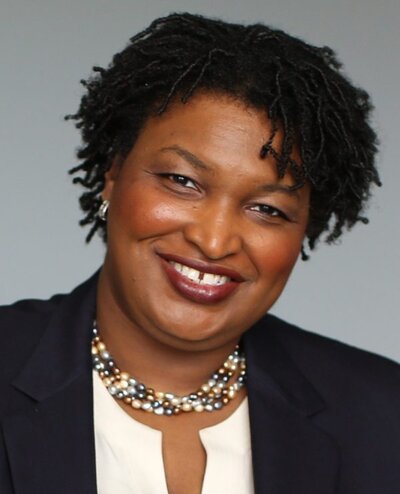
Stacey Abrams is a New York Times bestselling author, serial entrepreneur, nonprofit CEO and political leader. After serving for eleven years in the Georgia House of Representatives, seven as Democratic Leader, In 2018, Abrams became the Democratic nominee for Governor of Georgia, winning more votes than any other Democrat in the state’s history. Abrams was the first black woman to become the gubernatorial nominee for a major party in the United States, and she was the first black woman and first Georgian to deliver a Response to the State of the Union. After witnessing the gross mismanagement of the 2018 election by the Secretary of State’s office, Abrams launched Fair Fight to ensure every American has a voice in our election system through programs such as Fair Fight 2020, an initiative to fund and train voter protection teams in 20 battleground states. Over the course of her career, Abrams has founded multiple organizations devoted to voting rights, training and hiring young people of color, and tackling social issues at both the state and national levels. In 2019, she launched Fair Count to ensure accuracy in the 2020 Census and greater participation in civic engagement, and the Southern Economic Advancement Project, a public policy initiative to broaden economic power and build equity in the South.
Abrams is a lifetime member of the Council on Foreign Relations, where she serves on the Subcommittee on Diversity. As a Next Generation Fellow of the American Assembly on U.S. Global Policy and the Future of International Institutions, she also served as a discussion leader, editor, and essay contributor. She was also selected as a Salzburg Seminar Fellow on East Asian Studies, an American Marshall Memorial Fellow, an American Council of Young Political Leaders Fellow, a Council on Italy Fellow, a British-American Project Fellow and a U.S.-Russia Young Leaders Fellow. As the top-ranking Democrat in Georgia, she traveled to and met with leaders in South Korea, Israel and Taiwan, and she worked closely with several members of the consular corps. Her international policy travel includes Australia, Austria, Belgium, Bulgaria, Canada, France, Israel, Italy, the Netherlands, South Korea, Switzerland, Taiwan and the United Kingdom. Abrams is a member of former Secretary of State John Kerry’s World War Zero bipartisan coalition on climate change. She has been a featured speaker at the Aspen Ministers Forum, the Kerry Initiative-Yale Jackson Institute of Global Affairs, the National Security Action Forum and the Council on Foreign Relations, as well as a contributor to Foreign Affairs Magazine.
She is a recipient of the John F. Kennedy New Frontier Award and a current member of the Board of Directors for the Center for American Progress. Abrams has also written eight romantic suspense novels under the pen name Selena Montgomery, in addition to Lead from the Outside, formerlyMinority Leader, a guidebook on making real change, and Our Time is Now, which will appear in bookstores in June.
Abrams received degrees from Spelman College, the LBJ School of Public Affairs at the University of Texas and Yale Law School. Born in Madison, Wisconsin, she and her five siblings grew up in Gulfport, Mississippi and were raised in Georgia.
Pandemic Politics (Thursday, October 1, 2020 | 12:00 p.m.- 1:15 p.m. EDT)
Speakers:
Myrna Pérez, Director, Voting Rights & Elections, Democracy Program, Brennan Center for Justice
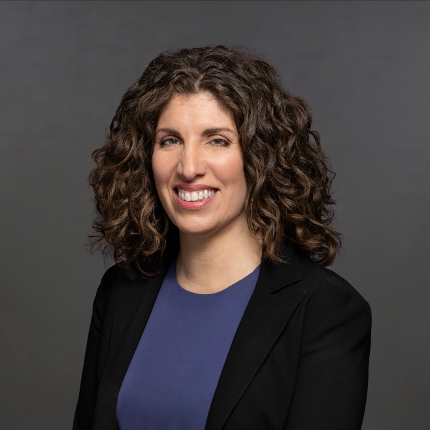
Twitter: @myrna_perez_
Myrna Pérez is director of the Brennan Center’s Voting Rights and Elections Program, and leads the Program’s research, advocacy, and litigation work nationwide. An expert on voting rights and election administration, she is the author of several nationally recognized reports and articles. Her work has been featured in media outlets across the country, including the New York Times, Wall Street Journal, and MSNBC. She has testified before Congress and several state legislatures on a variety of voting rights related issues. She is a lecturer in law at Columbia Law School and has also served as an adjunct professor of clinical law at NYU School of Law.
Prior to joining the Brennan Center, Pérez was the Civil Rights Fellow at Relman, Dane & Colfax, a civil rights law firm in Washington, DC. She graduated from Columbia Law School, where she was a Lowenstein Public Interest Fellow. Following law school, Pérez clerked for Hon. Anita B. Brody of the United States District Court for the Eastern District of Pennsylvania and for Hon. Julio M. Fuentes of the United States Court of Appeals for the Third Circuit. She previously served as the chair of the Election Law Committee of the City of New York Bar Association. Pérez is the recipient of several awards, including the Puerto Rican Bar Association Award for Excellence in Academia and the New Jersey League of Women Voters Making Democracy Work Award, and was named one of 2014’s 50 Hispanic Influentials by Hispanic Business.
Pérez earned her undergraduate degree in political science from Yale University. She obtained a master’s degree in public policy from Harvard Kennedy School, where she was the recipient of the Robert F. Kennedy Award for Excellence in Public Service. Prior to law school, she was a Presidential Management Fellow, serving as a policy analyst for the United States Government Accountability Office on issues including housing and health care.
Bernard L. Fraga, Associate Professor of Political Science, Emory University
Twitter: @blfraga
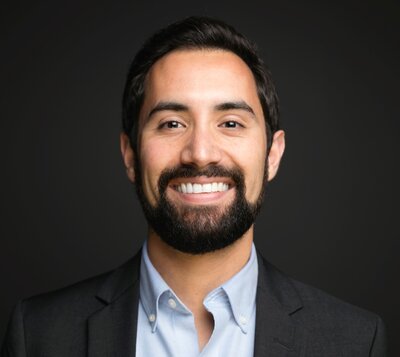
Dr. Bernard L. Fraga is an associate professor of political science at Emory University. He received his B.A. from Stanford University in 2008 and Ph.D. from Harvard University in 2013. Broadly speaking, Dr. Fraga is interested in how identity and context shape voter behavior. His methodology tends toward the statistical analysis of historical and contemporary data associated with voter registration records and election results. Dr. Fraga’s award-winning 2018 book The Turnout Gap: Race, Ethnicity, and Political Inequality in a Diversifying America provides the most comprehensive analysis to date of race and voter turnout, examining America’s four largest racial and ethnic groups and voting patterns from the 1800s to the present. Dr. Fraga also studies officeseeking, youth turnout, survey and voter file-based methodologies, and partisan competition. His research has been published in leading journals including the American Journal of Political Science, the Journal of Politics, Electoral Studies, Political Research Quarterly, the Journal of Race, Ethnicity, and Politics, and the Stanford Law Review. Findings from Dr. Fraga’s work have been featured in various media outlets including the New York Times, Washington Post, National Public Radio, and The Economist, and he has won multiple awards including the APSA Section on Race, Ethnicity, and Politics Best Book Award, the MPSA Lucius Barker Award, and the MPSA Latina/o Caucus Early Career Award. Dr. Fraga has also served as an expert consultant on multiple cases dealing with elections and voting rights, and regularly advises organizations dedicated to enhancing the civic and electoral engagement of all Americans.
Rabia Belt, Associate Professor of Law, Stanford Law School
Twitter: @RabiaBelt
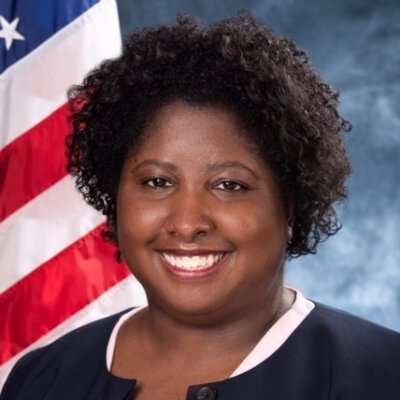
Rabia Belt is a legal historian whose scholarship focuses on disability and citizenship. Her scholarship ranges from cultural analysis of disability in media, to contemporary issues facing voters with disability, to the historical treatment of disabled Americans. She is currently writing a book titled, “Disabling Democracy in America: Disability, Citizenship, Suffrage, and the Law, 1819–1920.” In 2015, the American Society of Legal History named her a Kathryn T. Preyer Scholar for her paper, “Ballots for Bullets? The Disenfranchisement of Civil War Veterans.”
Professor Belt is also an advocate for people with disabilities. In 2016, President Obama named her as a Councilmember to the National Council on Disability, the independent federal agency that advises the President, Congress, and other federal agencies regarding policies and practices that affect people with disabilities. Additionally, she serves as a member of the Board of Directors for the Disability Rights Bar Association.
Prior to joining the Stanford Law faculty, she was a Visiting Assistant Professor and Research Academic Fellow at Georgetown University Law Center. Earlier in her career, she was a summer associate at Preston, Gates & Ellis, LLP, a parliamentary intern with the South African Human Rights Commission, and a research intern at the Office of the Monitor for Pigford v. Glickman & Brewington v. Glickman. She received her JD from the University of Michigan Law School in 2009 and her PhD in American Studies from the University of Michigan in 2015.
Dale Ho, Director, Voting Rights Project, ACLU
Twitter: @dale_e_ho
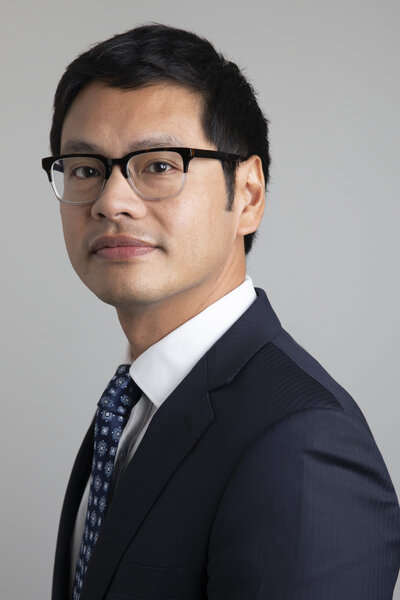
Dale Ho is the Director of the ACLU’s Voting Rights Project, and supervises the ACLU’s voting rights litigation nationwide.
Dale has active cases in over a dozen states throughout the country. His cases have included: Department of Commerce v. New York (successfully challenging the inclusion of a citizenship question on the Census), which he argued in the U.S. Supreme Court, and which is featured in the award-winning documentary film The Fight; and Fish v. Kobach (successfully challenging documentation requirements for voter registration in Kansas), which noted election law scholar Richard Hasen has described as “the most significant voting rights case this century”.
Dale has testified on election law issues before Congress, and in various state legislatures around the country. He is also an adjunct clinical professor of law at NYU School of Law.
Dale is a frequent commentator on voting rights issues, appearing on television programs including CNN; The Rachel Maddow Show; and All-In with Chris Hayes; has written opinion pieces for the New York Times; and is widely published on redistricting and voting rights in law reviews including the Yale Law Journal Forum and the Harvard Civil Rights-Civil Liberties Law Review.
Dale is the recipient of the 2020 Asian Law Alliance Legal Impact Award, and the 2019 National Asian Pacific American Bar Association (NAPABA) President’s Award. In 2018, he was named to the New York City Charter Revision Commission. In 2017, In 2017, Dale was named one of the best Asian American Lawyers under 40 by NAPABA.
Prior to joining the ACLU, Dale was Assistant Counsel at the NAACP Legal Defense Fund; an associate at Fried, Frank, Harris, Shriver & Jacobson LLP; and a judicial law clerk, first to Judge Barbara S. Jones, U.S. District Court for the Southern District of New York, and then to Judge Robert S. Smith, New York Court of Appeals. He is a graduate of Yale Law School and Princeton University.
Moderator: Samuel Issacharoff, Reiss Professor of Constitutional Law, NYU School of Law
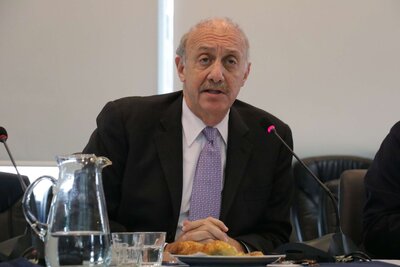
Samuel Issacharoff is the Reiss Professor of Constitutional Law. His wide-ranging research deals with issues in civil procedure (especially complex litigation and class actions), law and economics, constitutional law, particularly with regard to voting rights and electoral systems, and employment law. He is one of the pioneers in the law of the political process, where his Law of Democracy casebook (co-authored with Stanford’s Pam Karlan and NYU’s Rick Pildes) and dozens of articles have helped to create a vibrant new area of constitutional law. He is also a leading figure in the field of procedure, both in the academy and outside. He served as the reporter for the Principles of the Law of Aggregate Litigation of the American Law Institute.
Issacharoff is a 1983 graduate of the Yale Law School. After clerking, he spent the early part of his career as a voting rights lawyer. He then began his teaching career at the University of Texas in 1989, where he held the Joseph D. Jamail Centennial Chair in Law. In 1999, he moved to Columbia Law School, where he was the Harold R. Medina Professor of Procedural Jurisprudence. His published articles appear in every leading law review, as well as in leading journals in other fields. Issacharoff is a fellow of the American Academy of Arts and Sciences.
Future of the Franchise (Thursday, October 1, 2020 | 1:30 p.m.- 2:30 p.m. EDT)
Speakers:
Janai Nelson, Associate Director-Counsel, NAACP Legal Defense and Educational Fund
Twitter: @JNelsonLDF
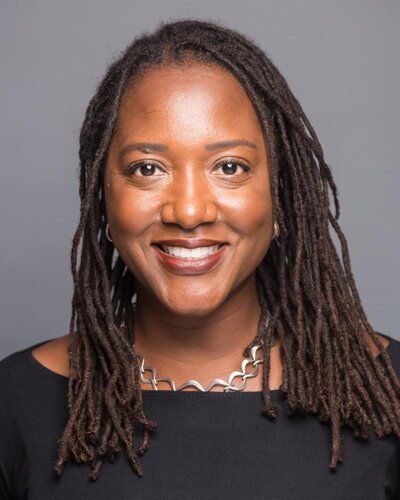
Janai S. Nelson is Associate Director-Counsel of the NAACP Legal Defense and Educational Fund, Inc. (LDF). As an organizational thought-leader at LDF, Nelson works with the President and Director-Counsel to determine and execute LDF’s strategic vision and oversee the operation of its programs, including having served as interim director of LDF’s Thurgood Marshall Institute. She is also a member of LDF’s litigation and policy teams, and was one of the lead counsel in Veasey v. Abbott (2018), a federal challenge to Texas’s voter ID law. Prior to joining LDF in June 2014, Nelson was Associate Dean for Faculty Scholarship and Associate Director of the Ronald H. Brown Center for Civil Rights and Economic Development at St. John’s University School of Law where she was also a full professor of law.
During her eight years at St. John’s, Nelson launched and led an annual student program at the Supreme Court of the United States and assisted in the direction The Ronald H. Brown Prep Program for College Students, an award-winning law school pipeline program, among countless other service activities.
Nelson is recipient of the 2013 Derrick A. Bell Award from the American Association of Law Schools (AALS) Section on Minority Groups and was named one of Lawyers of Color’s 50 Under 50 minority professors making an impact in legal education. Her scholarship centers on domestic and comparative election law, race, and democratic theory and she has taught courses in Election Law and Political Participation, Comparative Election Law, Voting Rights, Professional Responsibility, and Constitutional Law. Nelson’s most recent scholarly publication, Counting Change: Ensuring an Inclusive Census for Communities of Color, 119 Colum. L. Rev. (2019), advances a theory of representational equality in which all U.S. residents “are to be counted — and served — as constituents” and that centers the Census and the accurate count of the country’s most vulnerable populations in the functioning of our democracy. Prior to that, she published The Causal Context of Disparate Vote Denial, 54 B.C. L. Rev. 579 (2013), which examines Section 2 of Voting Rights Act as a disparate impact standard and the racial dimensions of modern vote denial. Her article, The First Amendment, Equal Protection, and Felon Disfranchisement: A New Viewpoint, 64 Fl. L. Rev. 111 (2013), explores the intersection of the First Amendment and the equal protection clause in reconsidering the constitutionality of felon disfranchisement in the United States. She also has several ongoing writing projects, including a chapter in a forthcoming book and a law review article on partisan gerrymandering in the wake of the decisions of the preceding Supreme Court term.
Prior to entering academia, Nelson was a Fulbright Scholar at the Legal Resources Center in Accra, Ghana, where she researched the political disfranchisement of persons with criminal convictions and the advancement of democracy in Ghana. Her research as a Fulbright Scholar is the basis of a publication entitled, Fair Measure of the Right to Vote: A Comparative Perspective of Voting Rights Enforcement in a Maturing Democracy,18 Cardozo J. Comp. & Int’l 425 (2010). Prior to receiving the Fulbright award, Nelson was the Director of LDF’s Political Participation Group where she oversaw all voting related litigation and matters, litigated voting rights and redistricting cases, and worked on criminal justice issues on behalf of African Americans and other under-served communities. While at LDF, she argued en banc before the Second Circuit and served as lead counsel in Hayden v. Pataki, a felon disfranchisement case that challenged New York State laws that deny the right to vote to people who are incarcerated and on parole for a felony conviction. She was also part of the team of civil rights attorneys representing African- and Haitian-American voters in NAACP v. Hood (a class action suit that arose out of the 2000 general elections) and one of the counsel representing a death row inmate whose sentence was commuted in 2003 by the U.S. Supreme Court in Banks v. Dretke.
Nelson began practicing law as the 1998 recipient of an NAACP LDF/Fried Frank Fellowship. She received a B.A. from New York University and a J.D. from UCLA School of Law where she served as Articles Editor of the UCLA Law Review, Consulting Editor of the National Black Law Journal, and Associate Editor of the UCLA Women’s Law Journal. Upon graduating from law school, Nelson clerked for the Honorable Theodore McMillian on the United States Court of Appeals for the Eighth Circuit (1997–1998) and the Honorable David H. Coar on the United States District Court for the Northern District of Illinois (1996–1997). She has been published on issues of domestic and comparative election law, democracy, race, and criminal justice and is a contributor to Thomson Reuters and Huffington Post. Nelson has also appeared on CNN, InsideOut, public radio and other media as an election law expert and regularly speaks at conferences and symposia nationwide.
Guy-Uriel Charles, Edward and Ellen Schwarzman Professor of Law, Duke Law School
Twitter: @ProfGuyCharles

Guy-Uriel Charles joined the Duke Law faculty in 2009. He is currently the Edward and Ellen Schwarzman Professor of Law at Duke Law School. He is the co-director, with Mitu Gulati, of the Duke Law Center on Law, Race and Politics. He teaches and writes about constitutional law, election law, campaign finance, redistricting, politics, and race. In 2016, he received the Law School’s Distinguished Teaching Award. He has published over 30 articles in journals including the Harvard Law Review, Constitutional Commentary, The Cornell Law Review, The Michigan Law Review, The Michigan Journal of Race and Law, The Georgetown Law Journal, The Journal of Politics, The California Law Review, The North Carolina Law Review, and others. He is the co-athor of two leading casebooks and two edited volumes. He has been a visiting professor at Harvard, Berkeley, Georgetown, Virginia, and Columbia law schools.
Professor Charles received his JD from the University of Michigan Law School and clerked for The Honorable Damon J. Keith of the United States Court of Appeals for the Sixth Circuit. While at the University of Michigan, he was among a group of students who founded the Michigan Journal of Race & Law and he served as the Journal’s first editor-in-chief. From 1995–2000, he was a graduate student in political science at the University of Michigan. He is a past member of the National Research Commission on Elections and Voting and the Century Foundation Working Group on Election Reform.
Prior to Duke, Professor Charles taught at the University of Minnesota Law School from 2000–2009 where he also held the Russell M. and Elizabeth M. Bennett Professor of Law. From 2006–2008, he served as the interim co-dean at the University of Minnesota Law School. At Minnesota, he was named the Stanley V. Kinyon Teacher of the Year for 2002–2003.
Eliza Sweren-Becker, Counsel, Democracy Program, Brennan Center for Justice
Twitter: @swerenbecker

Eliza Sweren-Becker serves as counsel in the Democracy Program at the Brennan Center for Justice, where she focuses on voting rights and elections. Prior to joining the Brennan Center, Sweren-Becker was a litigation associate in private practice at Boies Schiller Flexner LLP.
Sweren-Becker previously served as a Ford Foundation Fellow in the ACLU’s Speech, Privacy, and Technology Project. She then served as a law clerk to Hon. Christina A. Snyder of the United States District Court for the Central District of California. Before attending law school, Sweren-Becker was a research associate for Latin America Studies at the Council on Foreign Relations.
Sweren-Becker received a JD from Harvard Law School and a master’s degree in public policy from the Harvard Kennedy School. She holds a bachelor’s degree in international relations, magna cum laude, from Brown University.
Moderator: Justin Levitt, Professor of Law, Loyola Law School

Twitter: @_justinlevitt_
A nationally recognized scholar of constitutional law and the law of democracy, Professor Justin Levitt recently returned to Loyola after serving as a Deputy Assistant Attorney General in the Civil Rights Division of the U.S. Department of Justice. At DOJ, he primarily supported the Civil Rights Division’s work on voting rights and protections against employment discrimination (including LGBT rights in the workplace).
Levitt has published in the Harvard Law Review, the Yale Law and Policy Review, the Columbia Law Review, the Georgetown Law Journal, the William & Mary Law Review, the peer-reviewed Election Law Journal, and the online publications of the flagship law reviews at Yale and NYU, among others. He has served as a visiting faculty member at the Yale Law School, at USC’s Gould School of Law, and at Caltech. He was honored to receive Loyola’s Excellence in Teaching Award in 2013–14 and 2019–20.
Levitt has been invited to testify before committees of the U.S. House and Senate, the U.S. Civil Rights Commission, several state legislative bodies, and both federal and state courts. His research has been cited extensively in the media and the courts, including the U.S. Supreme Court. He maintains the website All About Redistricting, tracking the process of state and federal redistricting around the country, including litigation.
Levitt served in various capacities for several presidential campaigns, including as the National Voter Protection Counsel in 2008, helping to run an effort ensuring that tens of millions of citizens could vote and have those votes counted. Before joining the faculty of Loyola Law School, he was counsel at the Brennan Center for Justice at NYU School of Law, for five years. He also worked as in-house counsel to the country’s largest independent voter registration and engagement operation, and at several nonprofit civil rights and civil liberties organizations.
At Loyola, Levitt established the Practitioner Moot Program, a complimentary service to the community allowing attorneys with pending appellate matters to practice their arguments before faculty experts and experienced advocates. Under the program, Loyola has hosted recent moots for cases later argued in the Supreme Court, the Ninth Circuit, the California Supreme Court, and the California Courts of Appeal, among others.
Levitt served as a law clerk to the Honorable Stephen Reinhardt of the U.S. Court of Appeals for the Ninth Circuit. He holds a law degree and a masters degree in public administration from Harvard University, and was an articles editor for the Harvard Law Review. He is admitted to the bar in California, New Jersey, New York, and the District of Columbia, and to the U.S. Supreme Court, the U.S. Courts of Appeal for the Fourth Circuit, Ninth Circuit, and Eleventh Circuit, and the U.S. District Courts in the Central District of California and Northern District of Florida.
Day 2 (October): Representation
Fair Representation in an Increasingly Diverse America (Thursday, October 8, 2020 | 12:00 p.m.- 1:15 p.m. EDT)
Speakers:
Atiba Ellis, Professor, Marquette University Law School
Twitter: @atibaellis
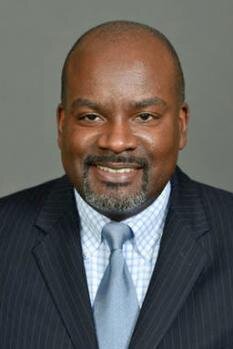
Atiba R. Ellis joined the Marquette University Law School faculty in 2018. His research focuses on voting rights law with specific attention to how varying conceptions of the right to vote exclude voters on the margins. He has written about the economic entry barriers posed by voter ID laws, felon disenfranchisement laws, the theoretical effects of the Citizens United Supreme Court decision, the impact of the Supreme Court’s decision in Shelby County v. Holder, and related topics. Professor Ellis’s current research focuses on voting rights theory and how ideology affects the scope of the right to vote. He has also written on critical legal theory and legal history. Professor Ellis is a frequent speaker at academic conferences, university and law school lectures, and community events about voting rights law, how race and gender affect the law of politics, diversity issues, and other matters related to the law of politics. Professor Ellis joined Marquette after teaching for nine years at the West Virginia University College of Law and after serving as the Boden Visiting Professor of Law at Marquette Law School in the fall of 2017.
Ming Hsu Chen, Associate Professor, University of Colorado Law School

Twitter: @minghsuchen
Ming Hsu Chen is an Associate Professor at the University of Colorado in Boulder, where she is a faculty member of the law school. She is the Faculty-Director of the Immigration and Citizenship Law Program and holds faculty affiliations in Political Science and Ethnic Studies. Professor Chen brings an interdisciplinary perspective to the study of immigration, civil rights, and the administrative state. In the law school, she teaches a variety of law and social science courses including Immigration Law, Citizenship Law, Administrative Law, Legislation & Regulation, Law & Politics: Race in America, and Law & Social Change. Her research on citizenship bridges law and social science. She writes at the intersection of immigration and administrative law. Her first solo-authored book, Pursuing Citizenship in the Enforcement Era, will be published by Stanford University Press in August 2020.
Professor Chen serves as Co-Editor for the Immigration Prof blog (@immprof). She writes for the Scholars Strategy network and The Conversation (@minghsuchen) and her research has been featured in BBC The World, National Public Radio, CBS Denver, The Denver Post and The Washington Post. She sits on the Colorado Advisory Council to the U.S. Commission on Civil Rights. Prior to joining the legal academy, Professor Chen clerked for the Honorable James R. Browning on the U.S. Court of Appeals, Ninth Circuit in San Francisco. She also worked for the US Equal Employment Opportunity Commission, NAACP Legal Defense Fund, National Asian Pacific American Legal Consortium, and the Brookings Institution. She earned degrees from the University of California Berkeley (Ph.D 2011), New York University Law School (JD 2004), and Harvard College (AB 2000).
Thomas A. Saenz, President and General Counsel, Mexican American Legal Defense and Education Fund

Twitter: @MALDEF
In 2009, Thomas A. Saenz returned to MALDEF as President and General Counsel. He leads MALDEF’s national efforts to promote the civil rights of all Latinos living in the United States. Previously, as Counsel to Los Angeles Mayor Antonio Villaraigosa, Saenz served on the four-person executive team to the mayor, where he provided legal and policy advice on major initiatives. During his four-year tenure with the Mayor’s Office, Saenz helped to lead the legislative effort to change the governance of Los Angeles Unified School District (LAUSD), and served for two years as the lead liaison on labor negotiations, with a goal of addressing serious financial challenges in partnership with the City’s workers.
Saenz previously practiced civil rights litigation at MALDEF for 12 years, including four years as Vice President of Litigation. He was MALDEF’s lead counsel in the successful challenge to California’s anti-immigrant Proposition 187, and he led numerous civil rights cases in the areas of immigrants’ rights, education, employment, and voting rights. Saenz achieved several victories against ordinances unlawfully restricting the rights of day laborers, served as lead counsel in the 2001 challenge to California’s congressional redistricting, and initiated the employment discrimination lawsuit resulting in a $50 million settlement with Abercrombie and Fitch. He also served as MALDEF’s lead counsel in two court challenges to Proposition 227, a California English-only education initiative. Saenz was also the lead drafter of the amicus brief on behalf of Latino organizations supporting affirmative action in the U.S. Supreme Court case of Grutter v. Bollinger. More recently, Saenz argued before the Supreme Court in United States v. Texas, representing intervenors defending Obama Administration deferred action initiatives
Saenz currently serves as a member of the Los Angeles County Board of Education. He also serves as chair of the National Hispanic Leadership Agenda (NHLA) and as a vice chair of the Leadership Conference for Civil and Human Rights. Saenz also serves as chair of the board of the Campaign for College Opportunity, and as a member of the board of the California Community Foundation. In the past, Saenz has served as steering committee co-chair of the California Civil Rights Coalition and as a member of the Los Angeles County Commission on Human Relations, the American Bar Association (ABA) Commission on Hispanic Legal Rights and Responsibilities, the ABA Commission on Immigration, the U.S. Department of Education’s Equity and Excellence Commission, and the California Task Force on K-12 Civic Learning. He has lectured at numerous universities, and for eight years, Saenz taught Civil Rights Litigation as an adjunct lecturer at the University of Southern California (USC) Law School. He has numerous publications in law reviews, newspapers, and online journals.
Saenz has been recognized on numerous occasions for his work. He was selected as one of Hispanic Business Magazine’s “100 Most Influential Hispanics” in October 2009. Among many honors, he received the Instituto de los Mexicanos en el Exterior (IME) Ohtli Award in 2006, the 2010 Corazón Award from Univision, and the ABA Spirit of Excellence Award in 2013.
Saenz was born and raised in southern California. He graduated summa cum laude from Yale University, and he received his law degree from Yale Law School. Saenz served as a law clerk to the Honorable Harry L. Hupp of the U.S. District Court for the Central District of California and to the Honorable Stephen Reinhardt of the U.S. Court of Appeals for the Ninth Circuit.
Moderator: Michael Li, Senior Counsel, Democracy Program, Brennan Center for Justice

Twitter: @mcpli
Michael Li serves as senior counsel for the Brennan Center’s Democracy Program, where his work focuses on redistricting, voting rights, and elections. Prior to joining the Brennan Center, Li practiced law at Baker Botts L.L.P. in Dallas for ten years. He was the author of a widely cited blog on redistricting and election law issues that the New York Times called “indispensable.” He is a regular writer and commentator on election law issues, appearing on PBS Newshour, MSNBC, and NPR, and in print in the New York Times, Los Angeles Times, USA Today, Roll Call, Vox, National Journal, Texas Tribune, Dallas Morning News, and San Antonio Express-News, among others.
In addition to his election law work, Li previously served as executive director of Be One Texas, a donor alliance that oversaw strategic and targeted investments in nonprofit organizations working to increase voter participation and engagement in historically disadvantaged African American and Hispanic communities in Texas.
Li received his JD with honors from Tulane Law School and an undergraduate degree in history from the University of Texas at Austin.
Building a More Inclusive Democracy (Thursday, October 8, 2020 | 1:30 p.m. – 2:30 p.m. EDT)
Speakers:
Wilfred Codrington III, Assistant Professor of Law, Brooklyn Law School; Fellow, Brennan Center for Justice
Twitter: @wuc3
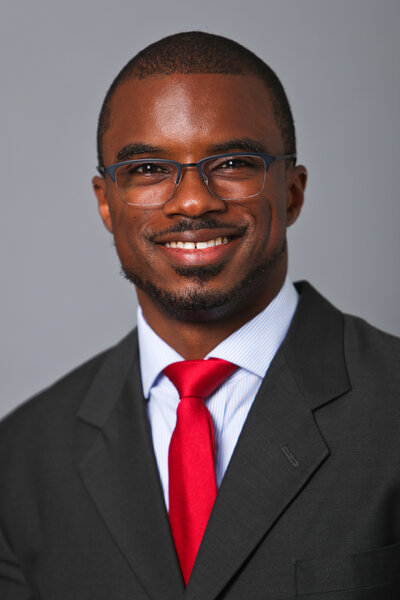
Professor Codrington is a constitutional law scholar with a focus on constitutional reform, election law, and voting rights. He was previously the Bernard and Anne Spitzer Fellow and Counsel at the Brennan Center for Justice at NYU School of Law where he focused on voting and election security, constitutional reform, and the rule of law. He also taught graduate and undergraduate courses at NYU Wagner School of Public Service on topics of law, public policy, and politics. Professor Codrington was also a Fieldwork Supervisor for the Brennan Center Advocacy Clinic, an NYU Law School clinic devoted to teaching public policy through real world legal reform campaigns that impact the laws of democracy and the regulation of election contests.
He is the co-author of the forthcoming book, The People’s Constitution: 200 Years, 27 Amendments, and the Promise of a More Perfect Union (The New Press 2021), which examines the history of constitutional amendments and the tension between the overall progressive arc of constitutional change and the conservative grip on the broader conversation about the Constitution. Among his recent articles are “So Goes the Nation: What the American West is Telling us about How We’ll Choose the President in 2020,” 120 Columbia Law Review 43 (Forum) (March 2020); and “The Benefits of Equity in the Constitutional Quest for Equality,” 43 N.Y.U. Review of Law & Social Change 105 (The Harbinger) (2019).
Previously, Professor Codrington was an associate at DLA Piper in the litigation, government investigations, and regulatory practices where he participated in a variety of pro bono projects on behalf of individual clients, minority communities, and nonprofit organizations. He also clerked for Hon. Deborah Anne Batts, U.S. District Judge for the Southern District of New York, and served as a staffer for U.S. Congresswoman Eleanor Holmes Norton.
Lee Drutman, Senior Fellow, Political Reform Program, New America
Twitter: @leedrutman

Lee Drutman is a senior fellow in the Political Reform program at New America. He is the author of Breaking the Two-Party Doom Loop: The Case for Multiparty Democracy in America (Oxford University Press, 2020) and The Business of America is Lobbying (Oxford University Press, 2015), winner of the 2016 American Political Science Association’s Robert A. Dahl Award, given for “scholarship of the highest quality on the subject of democracy.”
He is also the co-host of the podcast Politics in Question, and writes for the New York Times, Vox, and FiveThirtyEight, among other outlets.
He holds a Ph.D. in political science from the University of California, Berkeley and a B.A. from Brown University.
Ciara Torres-Spelliscy, Professor of Law, Stetson University College of Law; Fellow, Brennan Center for Justice
Twitter: @ProfCiara
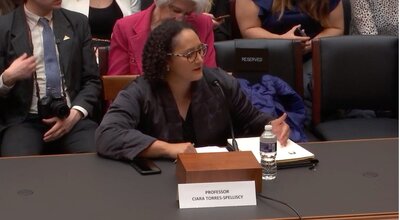
Ciara Torres-Spelliscy is a professor teaching courses in Election Law, Corporate Governance, Business Entities, and Constitutional Law. Prior to joining Stetson’s faculty, Professor Torres-Spelliscy was counsel in the Democracy Program of the Brennan Center for Justice at NYU School of Law where she provided guidance on the issues of money in politics and the judiciary to state and federal lawmakers. She was an associate at Arnold & Porter LLP and a staffer for Senator Richard Durbin.
Professor Torres-Spelliscy has testified before Congress, and state and local legislative bodies as an expert on campaign finance reform. She has also helped draft legislation and Supreme Court briefs. She is the editor of the 2010 edition of the Brennan Center’s campaign finance treatise, “Writing Reform: A Guide to Drafting State and Local Campaign Finance Laws.”
She researches and speaks publicly on campaign finance law as well as judicial selection. She has spoken at symposia and other events at 44 universities around the nation, including Harvard, Yale, and Stanford. She presented at the 2013, the 2015, the 2018, the 2019, and the 2020 Annual Conventions of the Association of American Law Schools (AALS) and at the 2014, 2018, and 2019 Annual Convention of the American Constitution Society (ACS), and the 2011, the 2014, and the 2016 Annual Conventions of the Council on Governmental Ethics Laws (COGEL). In 2016 she spoke at the Federal Election Commission (FEC) at a forum on dark money and foreign money in U.S. elections. In 2018, she spoke at the International Society of Public Law’s ICON-S conference in Hong Kong.
She is the author of the book Corporate Citizen? An Argument for the Separation of Corporation and State (Carolina Academic Press, 2016), and the book Political Brands (Edward Elgar Publishing, 2019).
As well as publishing in law reviews, such as the Harvard Law & Policy Review, NYU Law Review Online, the University of Pennsylvania Law Review Online, Harvard Journal of Law & Public Policy, the Duke Journal of Constitutional Law & Public Policy, and the Montana Law Review, Professor Torres-Spelliscy has been published in The Washington Post, New York Times, New York Law Journal, Slate, L.A. Times, U.S. News and World Report, Boston Review, Roll Call, Business Week, Forbes, The Atlantic, USA Today, Business Ethics Magazine, San Francisco Chronicle, The Hill, Huffington Post, The Root.com, Judicature, The Nation, Salon.com, Talking Points Memo, Tampa Bay Times, The Progressive, CNN.com, Medium, Shondaland, and the ABA Judges Journal. She has also been quoted by the media in The Wall Street Journal, The Economist, The New York Times, Time, Bloomberg, Mother Jones, Newsweek on Air, SCOTUS Blog, Politico, Slate, The National Journal, USA Today, L.A. Times, Boston Globe, NBC.com, Vox, VICE, Five Thirty Eight, WMNF, Sirius Radio, National Public Radio, Fox, Voice America, CSPAN, DNA TV, and NY1.
In 2014, Stetson University College of Law awarded Professor Torres-Spelliscy the Dickerson-Brown award for Excellence in Faculty Scholarship. In 2013, Professor Torres-Spelliscy was named as a member of the Lawyers of Color’s “50 Under 50” list of minority law professors making an impact in legal education. She was awarded tenure in 2016. In 2017, she was elected to be Chair of the AALS Section on Election Law for a term that started in 2018. She was awarded the Homer & Dolly Hand Award for Excellence in Faculty Research by Stetson University in 2019. In 2020, Professor Torres-Spelliscy was elected to be a member of the AALS Section on Constitutional Law Executive Committee.
Professor Torres-Spelliscy is a Brennan Center Fellow, a member of the Scholars Strategy Network, a member of the Board of Directors of the Mertz Gilmore Foundation, a former member of the Board of Directors of the National Institute on Money in State Politics, which was awarded the 2015 MacArthur Award for Creative and Effective Institutions.
Cristina Tzintzún Ramirez, Founder and Chief Strategy Officer of Jolt (jolttx.org) and former U.S. Senate candidate (Texas)
Twitter: @cristinafortx

Cristina Tzintzún Ramirez is a leading civil rights leader and former 202 US Senate candidate. She was named “Hero of the New South” by Southern Living Magazine and her work has been featured on NPR, Vogue, The New York Times, MTV, USA Today, Univision, MSNBC’s Up Late with Alec Baldwin, among others. She is also a JM Kaplin Innovation Prize winner and a Roddenberry award winner.
Cristina is the founder and Chief Strategy Officer of Jolt — a Texas-wide organization that lifts up the voice, vote and issues impacting Latinos. Founded in 2016, Jolt seeks to win the nearly 11 million Latinos living in Texas the power and respect they deserve. Jolt’s work has reached tens of millions of Americans, mobilized thousands to action and built the leadership of young Latinos across Texas.
Cristina began her social justice career when she co-founded Workers Defense Project (WDP), a workers’ rights organization with the mission to win better working conditions for immigrant workers in Texas. She built WDP from a small volunteer project into a statewide organization that was named “one of the most creative organization’s for immigrant workers in the country” by the The New York Times. She helped lead the organization for over a decade, taking on two of the most powerful special interest groups in Texas – the construction and real-estate industries.
At WDP, Cristina won the passage of half a dozen local and state laws better protecting the rights of hundreds of thousands of workers. Additionally, Cristina uncovered widespread safety hazards facing construction workers in Texas, leading to a federal investigation and new national initiatives to ensure stronger workplace safety enforcement for vulnerable worker populations.
Cristina is an author on issues of race, gender and immigration, and she is the co-author of “Presente! Latino Immigrant Voices in the Struggle for Racial Justice” published by AK Press (2014).
Moderator: Nicholas O. Stephanopoulos, Professor of Law, Harvard Law School
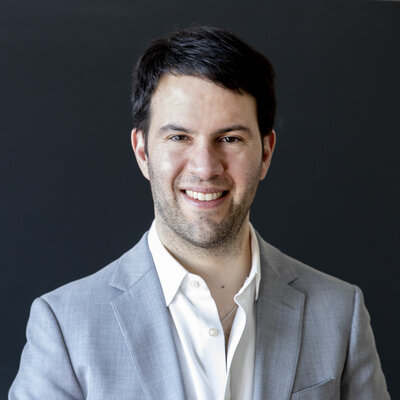
Nicholas Stephanopoulos’s research and teaching interests include election law, constitutional law, administrative law, legislation, and comparative law. His work is particularly focused on the intersection of democratic theory, empirical political science, and the American electoral system. His academic articles have appeared in, among others, the Columbia Law Review, Duke Law Journal, Harvard Law Review, Northwestern University Law Review, New York University Law Review, Stanford Law Review, University of Chicago Law Review, University of Pennsylvania Law Review, Virginia Law Review, and Yale Law Journal. He has also written for popular publications including the New York Times, Los Angeles Times, Chicago Tribune, Atlantic, New Republic, Slate, and Vox. He has been involved in several litigation efforts as well, including two partisan gerrymandering cases based on his scholarship and decided by the Supreme Court.
Before joining the Harvard Law School faculty, Stephanopoulos was a Professor of Law at the University of Chicago Law School. He was previously an Associate-in-Law at Columbia Law School and an Associate in the Washington, DC office of Jenner & Block LLP. Before entering private practice, he clerked for Judge Raymond C. Fisher of the Ninth Circuit Court of Appeals.
A graduate of Yale Law School, Stephanopoulos also holds an M.Phil. in European Studies from Cambridge University and an A.B. in Government from Harvard College, graduating summa cum laude. While at Yale, he served as Editor-in-Chief of the Yale Journal of International Law, received the Jewell Prize for best second-year student contribution to a law journal, and was a finalist in both the moot court and mock trial competitions.
Stephanopoulos is a frequent television and radio commentator on legal issues. He is a co-founder of PlanScore, a website evaluating past, present, and proposed district plans. He is a member of policy reform initiatives including the Campaign Legal Center’s Litigation Strategy Council and the Committee for the Study of Digital Platforms. He has been named to The Politico 50 list as well as the National Law Journal’s “Chicago’s 40 Under 40.”